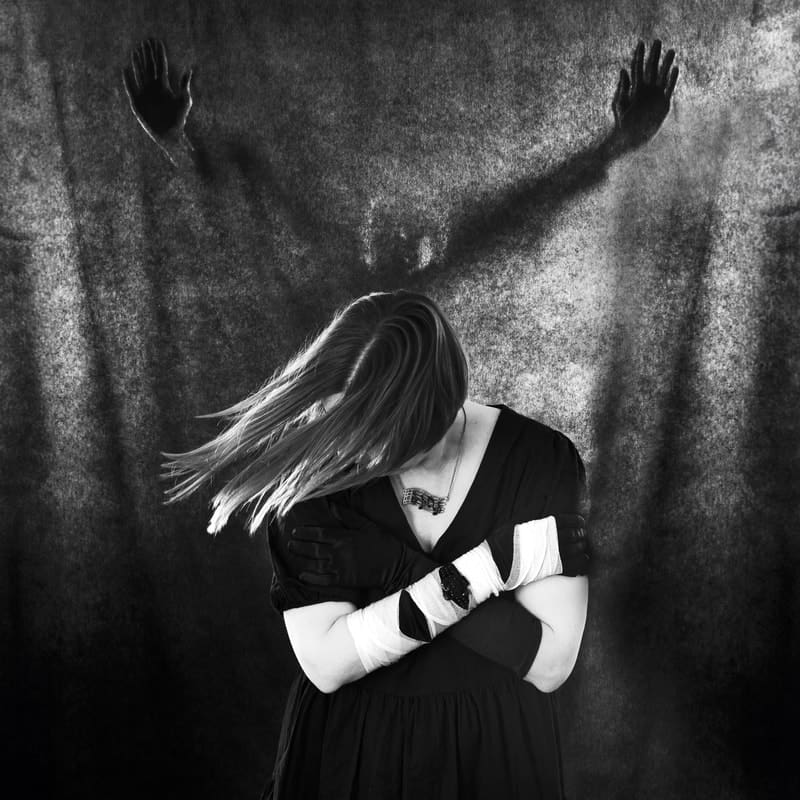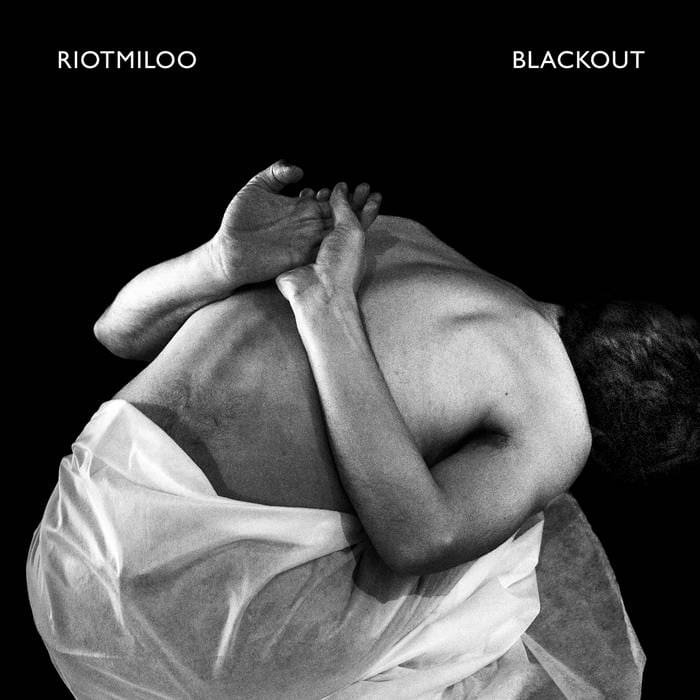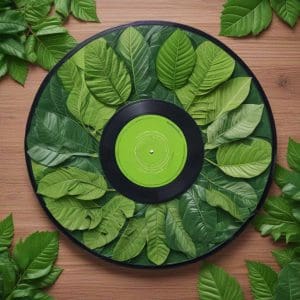Click Interview with Riotmiloo: ‘You Don’t Have To Conform To Any Standard’


Riotmiloo
Riotmiloo is a sonic project driven by Emilie Verbieze. The French native artist lives in London (UK) and released by the end of 2023 her second full length album “Blackout” by Ant-Zen. This work stands for Minimal-Electronics mixed with Industrial- and Experimental influences. I had an interesting chat with an artist you’ve to discover. (Picture credits by Esmeralda Muñoz-Torrero – Interview courtesy by Inferno Sound Diaries)
Q: You’ve been involved with music for quite a time now so can you draw up the balance sheet from all of your projects, activities and more specifically from Riotmiloo?
Emilie: Hello, I relocated to London in 2002 to immerse myself in the arts and music scene of this vibrant city. I was fortunate to connect with amazing individuals across different musical genres. In my first band, 3 Ant Riot, we had the chance to play around and innovate with sound. With Venom Seeds, our focus was on expressing feminist rage and chaos within a Garage-Punk framework. Riotmiloo has continually evolved, gradually shifting towards a more Electronic and Industrial sound. I’ve been incredibly lucky to have built strong friendships with people who share my interests, and the audience support has been amazingly positive and encouraging.
Q: You first got involved with Punk bands so what do you still recognize from that time in Riotmiloo -and more specifically in the lyrical content?
Emilie: One of the things that I loved (and still love from the Punk scene) is the ‘Do It Yourself’-spirit. Team up with your friends and make it happen. We don’t need the mainstream to create our own scene and to operate efficiently in terms of releases and playing gigs.
For many years, feelings of anger, dissatisfaction, and rebellion have inspired my songwriting. Speaking frankly, there are many aspects of the world that deeply frustrate me. This state of shock enables me to sit down and write lyrics on my notepad. These lyrics are often drawn from the struggles and difficult true stories of people’s lives.
Q: Your debut-album “La Pierre Soudée” was released in 2015 and featured an impressive list of guests. How do you look back at this experience and how happened the switch towards your new work without guests?
Emilie: I hold dear memories of “La Pierre Soudée.” Before its release, I often collaborated as a guest vocalist with various artists. However, I once had the idea to turn the tables and invite others to contribute to my first album. The level of enthusiasm and support from the artists who agreed to collaborate with me was unexpected and heart-warming. They were all wonderful.
When it came time to work on my second album, “Blackout,” I aimed for a more intimate and suffocating sound. At that time, the music room was packed with analogue synthesizers. I believed that two people were more than enough, minimizing the need for extensive musical exchanges. Consequently, the project was brought to life by just two people, EVA|3 and myself, using our two brains and four hands.
Q: When did you start the writing of “Blackout” and what have been the main influences, triggers, and different stages you’d to go through to achieve this work?
Emilie: The first song was “Blackout” itself. I originally wrote it to start a whole new project with another artist. Then his sound began to change. Mine too. Someone else tried to have a go at it and it never quite worked out. Then Eva|3 tried to flesh something out of it with analogue sounds. It sounded so delicate yet strong and beautiful at the same time. We knew we had achieved something special and it gave me the idea to explore more analogue sounds and machines to fit the new concept.
My influences span a broad spectrum. I’ve always been captivated by the intense sound of Haus Arafna and the coldness of their side project, November Növelet. They skillfully evoke moods of atmosphere and despair. Portishead has also inspired me, with their exceptionally high-quality production and Beth Gibbons’ delicately stunning voice. More recently, Gazelle Twin has become a significant inspiration. I’m particularly drawn to the powerful, menacing aspect of her character.
Regarding what inspires me, suffering comes to mind -it’s a universal experience that we’ve all encountered at some point. With “Blackout,” my goal was to delve into the internal battles we face, while also breaking down the artificially constructed barriers that separate what’s considered normal from madness. The struggles we each endure -mine, yours, and theirs -are all legitimate. Ultimately, I aimed to challenge and dismantle the stigma surrounding mental health, in hopes of starting meaningful discussions on the topic.
Q: “Blackout” features multiple analogue sound treatment creating an explicit retro-touch and yet it still sounds refreshing and magic. That’s quite contradictory don’t you think? What makes your fascination for analogue gear and do you have favorites?
Emilie: I feel that “Blackout” is also magical because it is more than the sum of its parts. I wanted the sound to feel bleak and oppressive, the beats to be suffocating. I wanted the voice and the lyrics to guide the listener into the dark corners of the human psyche. I feel it is a bit like alchemy, all the parts fit in together and make the whole listening experience unique.
Even though we never planned for a retro vibe, it’s a natural trait of analogue synthesizers. The goal was to allow these synthesizers to express feelings freely. This might have led to what some perceive as a ‘retro sound’. Nevertheless, we also appreciate the crispness and detailed impact found in modern production and mixing. The essence of this album also lies in its contrasts; we aimed to create a sound that feels both intimate and constricting yet simultaneously expansive and liberating.
In the recent decade, I’ve developed a fondness for the sounds produced by analogue equipment like the Korg MS20, the Moog D-FAM, the vintage Soviet LELL UDS drum synths, the Moog Werkstatt. More recently, I have been playing with the Soma Lyra 8 and the Pipe. The sounds they create are incredibly rich, warm, and somehow both menacing and comforting at the same time -I absolutely love them. Additionally, I have a special liking for the Gristleizer; it’s an amazing device that always meets my expectations.
Q: l’ve been always wondered why there’re less female artists -except female singers, actively involved with writing and production of Electronic/Industrial music. I think it’s an aspect you’ve been always concerned about but do you think there’s an explanation to the lack of female composers and how do you expect things evolving?
Emilie: In both the physical world and online, there are people who tend to be overly critical. This is truly unfortunate, as it discourages many artists from sharing their work. Some groups face even more criticism than others. In my opinion, it’s best to ignore such negativity and pursue what you’re passionate about. We might be too much or too little for some people’s liking, but does it really matter? Find your community. You don’t have to conform to any standard. Focus on being an artist, which is challenging enough.
In terms of evolution, I believe there’s still room for growth. I’m eager to hear from a wider range of artists. I hope to see more diverse line-ups at concerts and festivals. By ‘diverse,’ I mean truly inclusive of Lesbian, Gay, Bisexual, Transgender, Queer individuals, as well as people from various racial and cultural backgrounds. We can gain so much by learning from one another!
Q: You’re a French living in London, right? How do you perceive the music ‘culture’ between both countries and their fans -England and France being probably two of the most influential European countries when it comes to music?
Emilie: Yes, I was born in France and I have been living in London for more than twenty years now. I moved from France because I believed England offered more opportunities for artistic expression.
I feel deeply connected to French language and poetry. I also have a strong affinity for music from the French label Audiotrauma. I still enjoy listening to artists like Twinkle, Sonic Area, and Chrysalide, among others. Flint Glass and Cent Ans De Solitude are also on my recommendation list. Their music creates a rich, soul-stirring soundscape.
Living in London has enabled me to experiment and forge connections with people both from England and other countries. I’m significantly influenced by the pioneering sound of Throbbing Gristle and Bristol’s Trip-Hop scene, but I also find inspiration in German Electronics and Swedish Death-Industrial music.
Since you’re here …
… we have a small favour to ask. More people are reading Side-Line Magazine than ever but advertising revenues across the media are falling fast. Unlike many news organisations, we haven’t put up a paywall – we want to keep our journalism as open as we can - and we refuse to add annoying advertising. So you can see why we need to ask for your help.
Side-Line’s independent journalism takes a lot of time, money and hard work to produce. But we do it because we want to push the artists we like and who are equally fighting to survive.
If everyone who reads our reporting, who likes it, helps fund it, our future would be much more secure. For as little as 5 US$, you can support Side-Line Magazine – and it only takes a minute. Thank you.
The donations are safely powered by Paypal.








